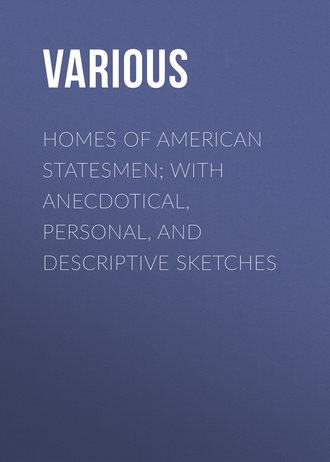Homes of American Statesmen; With Anecdotical, Personal, and Descriptive Sketches
 полная версия
полная версияHomes of American Statesmen; With Anecdotical, Personal, and Descriptive Sketches
Жанр: учебная и научная литературазарубежная образовательная литературамедицина / здравоохранениеисторическая научная и учебная литератураобщая историямедициназнания и навыки
Язык: Английский
Год издания: 2017
Добавлена:
Настройки чтения
Размер шрифта
Высота строк
Поля









